It’s not often that you get the chance to play a game where not only are the drinks piping hot, but the conversations are too. Coffee Talk Episode 2: Hibiscus and Butterfly is the next addition to Toge Productions’ cozy café simulator and visual novel crossover. If you want an intimate, relaxing game with a hint of fantasy and pixel art, you’ve found the right game. Even three years later, the return to Coffee Talk is lovely as ever. But of course, this is far from a perfect game, and lacks at times features that could make it stellar.
Overall although, I had a good time coming back to my favorite late-night café in this alternate version of Seattle. If you don’t know the premise, the world of Coffee Talk brings you to a version of Earth where other fantasy races live amongst humans. While set in modern-day, there is a history to this world that unravels throughout your time running the café. You play as the owner of this establishment, anonymous except for your chosen name and friendly nature.
Just like the first one, Episode 2 plays over the course of a couple weeks. The main features of this game are quick puzzles and conversing with patrons. Coffee Talk‘s heart lies within the struggles and stories your customers tell, and the friendships and breakups that come from them. It’s also carried by the three-ingredient drink making system. The puzzles lie within figuring out people’s orders, remembering past ones, and experimenting with drinks. Coffee Talk Episode 2 is perfect for players who want more of the first game, and enjoy short and cozy experiences.
Just another rainy night
Each day—or should I say night—is always a mystery. You’ll never exactly know who will be your next customer, or what new story they have to tell. You as the barista in the first game got to know a variety of people, and they will make a reappearance throughout Episode 2. There are a few new faces in this game, each with their own struggles. Usually, these struggles tie in with their career, relationships, or the hardships of their fantasy race. People such as orcs, elves, satyrs, werewolves, and more will visit you.
What really makes this game special is the universe it takes place in. If there was no fantasy element to it, it may have been a little boring. Their issues are usually very relatable to real-world issues, but if they are fantasy in nature, it isn’t hard to understand the allegory Toge Productions is making. You understand the vague history of how there was a war between humans and fantasy races. But the details of how the world changed from then on are left in tidbits. The worldbuilding is interesting, and there is still a lot left untold, making a possible Episode 3 evermore exciting.
These rainy Seattle nights make the café atmosphere even cozier. Not only does the art direction reflect ’90s anime in pixelated form, but lo-fi beats play in the background. You can even open up your smartphone and use the music app, letting you choose which song you’d like best. The phone also has a newspaper app, the Brewpad for all your recipes, and Tomodachill, the social media app. Interacting with this during gameplay is a nice break, and gives insight into the social lives of your new friends.
Brewing possibilities
Aside from the visual novel aspect of Coffee Talk, the most interesting gameplay mechanic involves brewing drinks. Most of the time, when a patron arrives, they’ll ask for a drink. Sometimes they’ll ask for something you already have in your Brewpad, like an Espresso. But other times, you’re tasked with figuring out what they want. Someone may remember two out of the three ingredients from a drink they love. Another may ask that you remember the drink you first made them. And sometimes, they give a vague description of what drink they’d like and how it makes them feel.
If you get it wrong, there isn’t much downside to it. But it does raise your friendship level with them on Tomodachill if you get it right. Although it feels good to make it correctly, it would be nice to have more of an incentive toward perfecting their order. Also, as much as I enjoy picking which ingredients should go in what order, I found myself yearning for more. Not just more ingredients, but perhaps more things to make a drink unique.
I grew up playing time management games on my laptop where you’d work in restaurants and you’d have to serve customers quickly with the right orders. So I wasn’t surprised that I wanted more choices like the size of the drink, or more add-ons like the latte art. Perhaps I’m wanting Coffee Talk to stray from its simplistic drink puzzles and go towards a café simulator, which is only my opinion. But I can understand the vision that Toge Productions wanted, and know that its focus was on the story, not the gameplay. Yet, I still hope that if Episode 3 comes out, there are more gameplay possibilities to make this café my own unique place.
Subtle improvements
Although, there were some things that Episode 2 added that made the game more interesting. One of those things was the ability to give people items from your tray. Sometimes, they’d be lost items that patrons would accidentally leave behind. And other times, it’d be something like a business card or invitation that a friend asks you to give to someone. This was a mechanic that not only kept me involved with the lives of my new friends, but made me think of who I could give them to, and what unique things would come from it.
For instance, without any spoilers, one character left an ID card. This character isn’t ever a customer, but on the off chance that they would be, I didn’t want to give it back. I didn’t like this character, so I wanted to give the ID to someone else who could do something useful with it. My decision there seemed to change the story of what happened next, since these two characters were sort of against each other. Sadly though, those are the only choices you get to make, since there are no dialogue choices. But my character usually said what I wanted them to say anyway.
Episode 2 also introduced two new tea types, which are Hibiscus and Blue Pea. With these came many new and interesting recipes, each with its own unique title. They were usually named after who asked for the special drink, and looked like something from a super-fancy restaurant. While it was fun to experiment and try to figure out what the patron wanted, sometimes their description was way too vague. This led me to either relenting and giving them the drink they didn’t exactly want, or googling the correct answer.
Intimate stories and connections
The true heart of Coffee Talk, as said before, comes down to the writing. In both episodes, each customer you meet and befriend goes through their own arc. They chat about their struggles at this café that only runs at night, talk to other customers that share some insights, and learn something from them. By the end of Episode 2, everyone changes in their own ways, and it’s because of you. Your café is a sort of safe haven for these troubled individuals, and it’s lovely to see them connect with other customers.
You’re subconsciously building a found family, helping people who need it most, and seeing how they grow from there. There were some characters from the first Episode that reappeared for brief moments, and I wished that their stories lasted a little longer. Others had their rightful time to shine, especially the new characters. It only took me about five hours to complete, and lasted around two weeks in-game. Also, there isn’t much to say about graphics or how it runs. It’s a small indie-game that has a 2D pixelated art style, there’s no worry that your PC can handle it.
As much as I enjoyed the little narratives throughout, there was no stand-out story, or jaw-dropping moments. This game is good, but it didn’t grip me the way other games’ narratives have. The meanings and lessons behind the stories aren’t shallow, but they aren’t entirely deep either. I still really enjoyed my time with Coffee Talk Episode 2, despite some of my gripes. Nevertheless, if you’re someone who wants a relaxing visual novel that lets you become a barista, you should definitely try this out. Of course, play the first one beforehand, since the game assumes you’ve already done so.

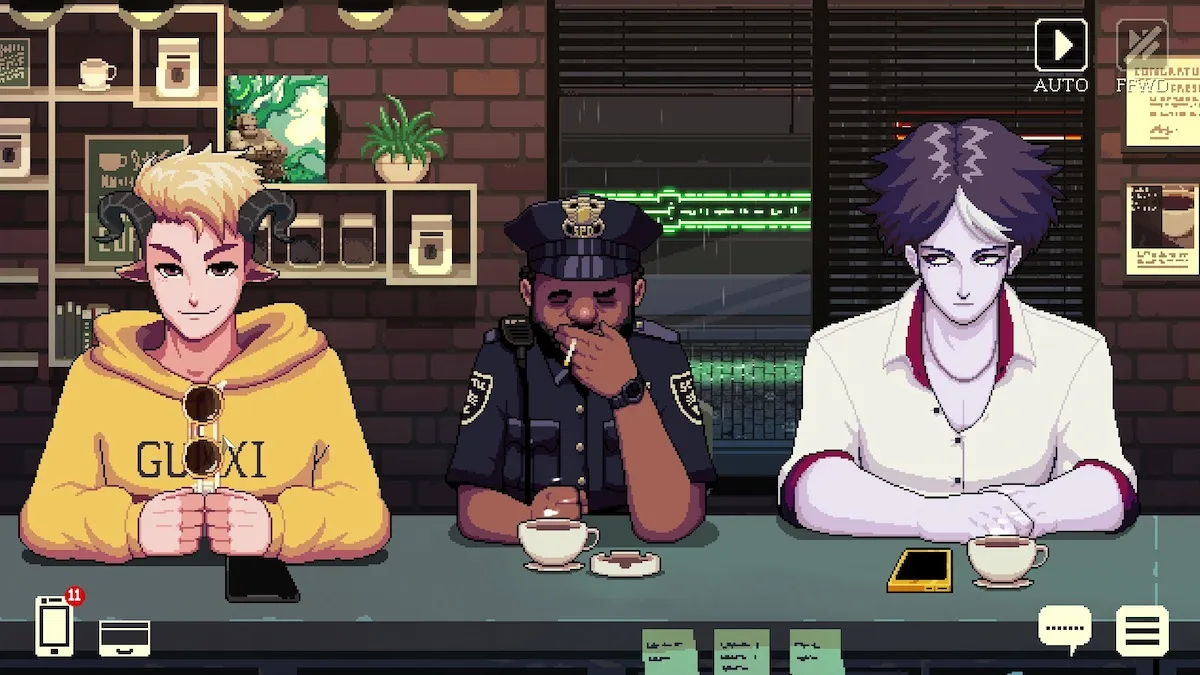
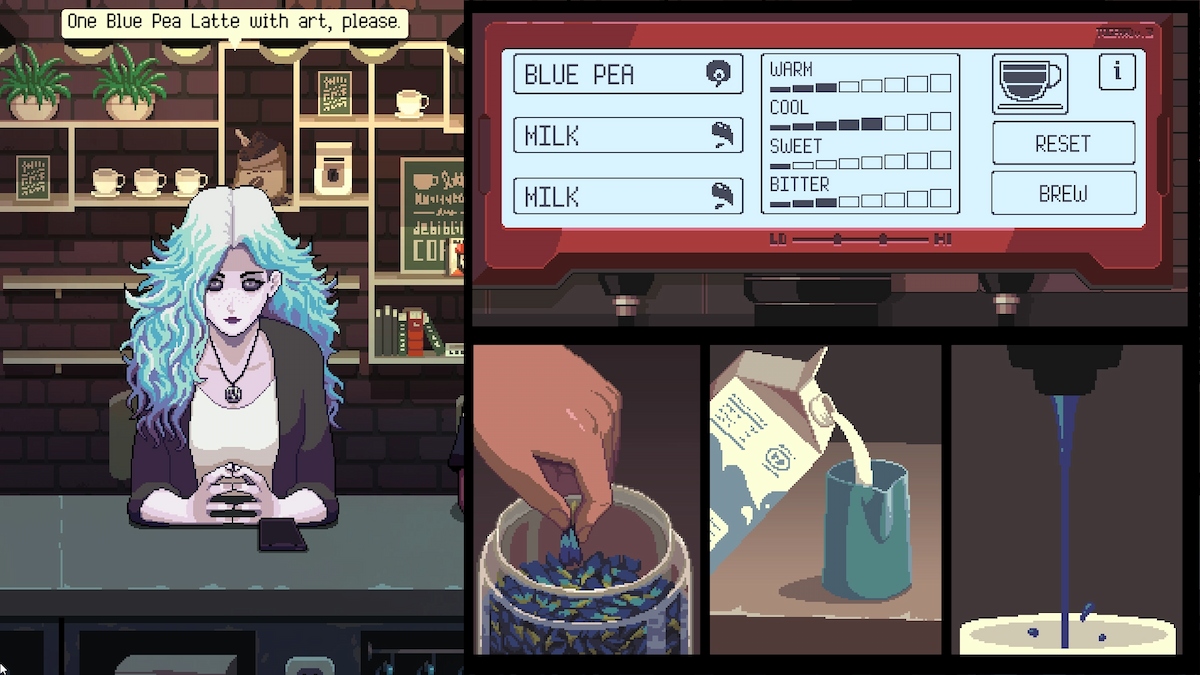
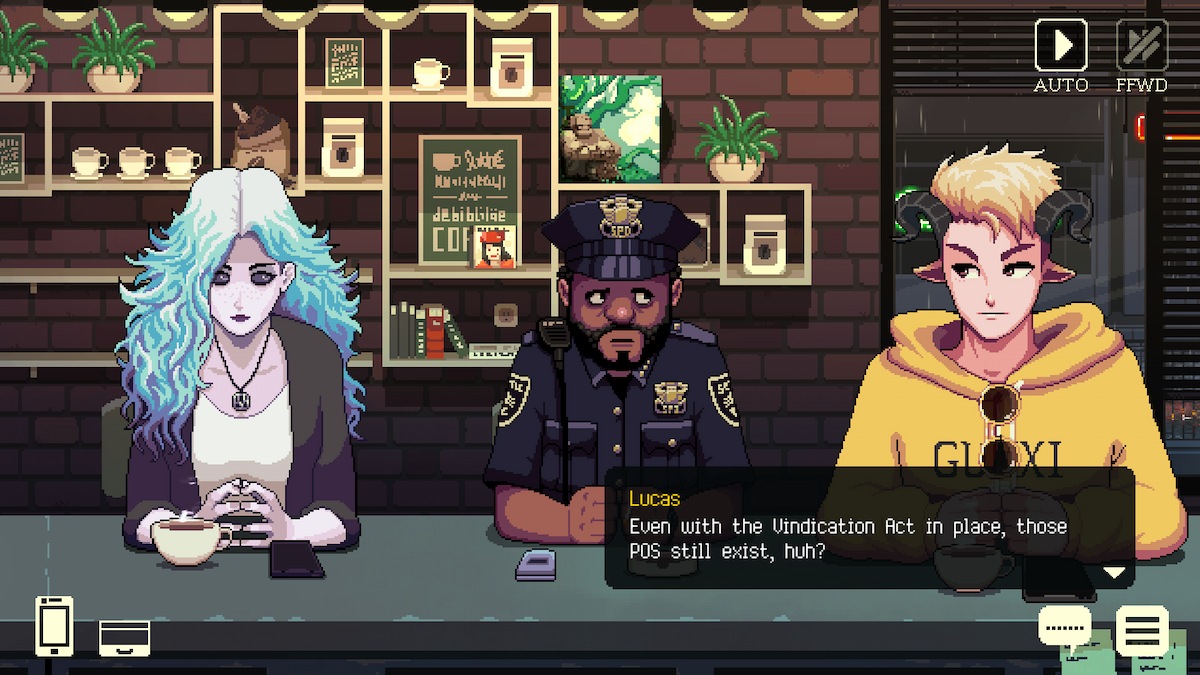
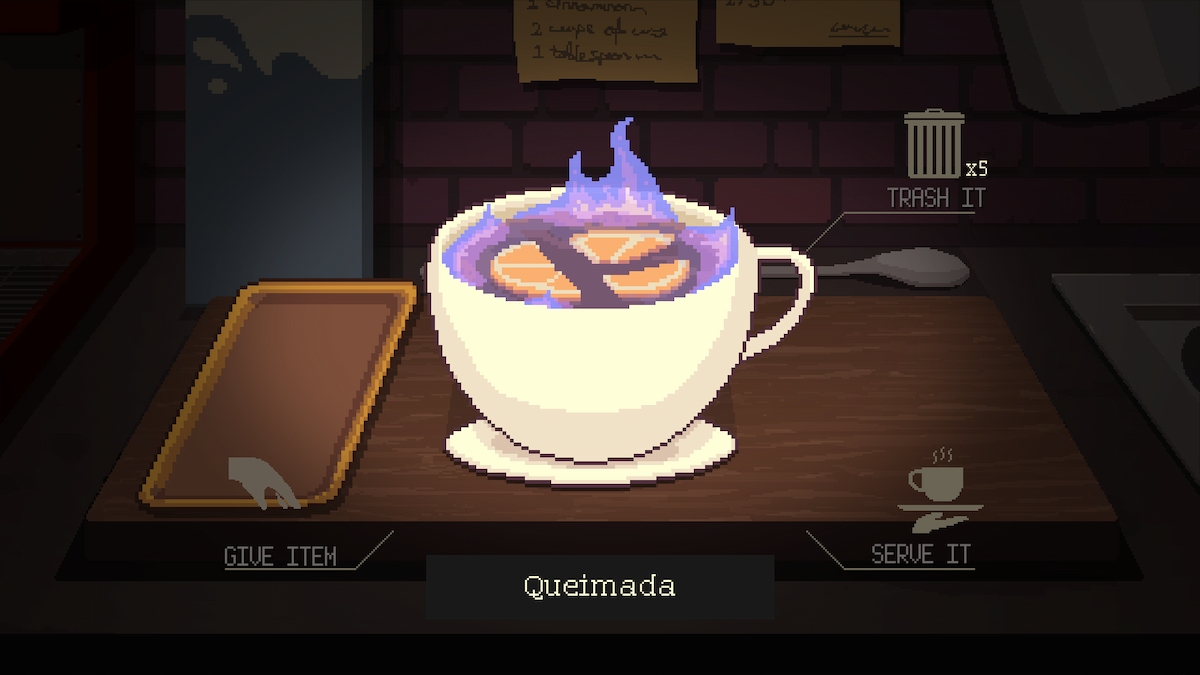
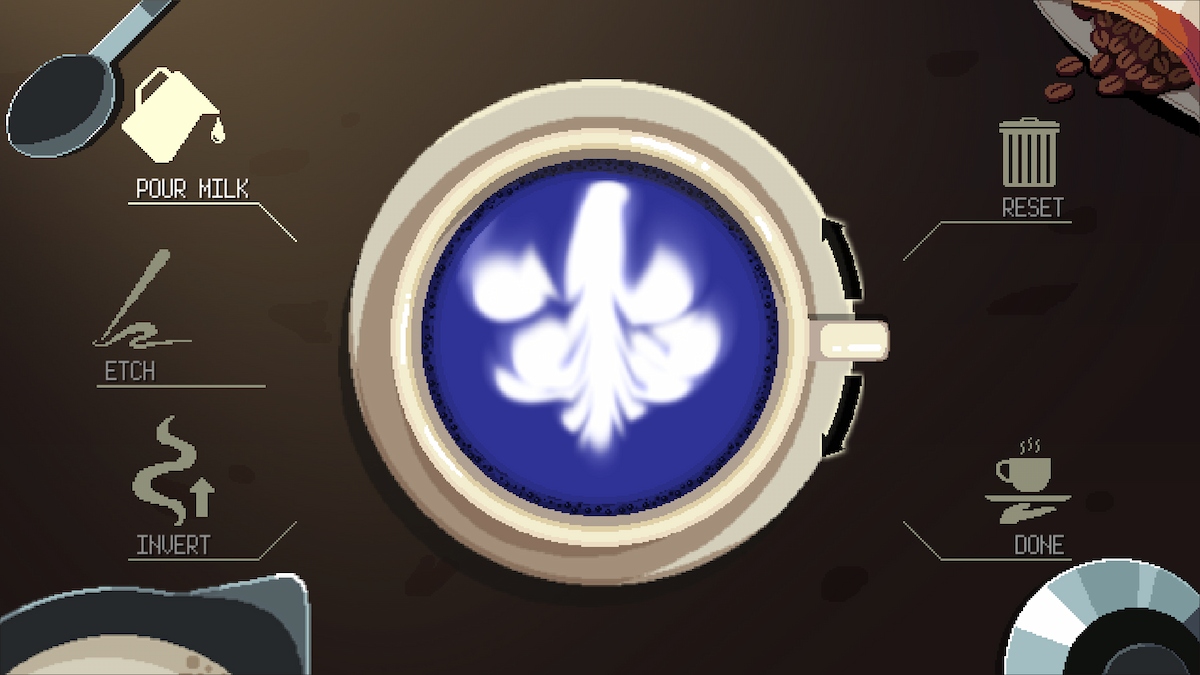






Published: Apr 25, 2023 06:55 pm